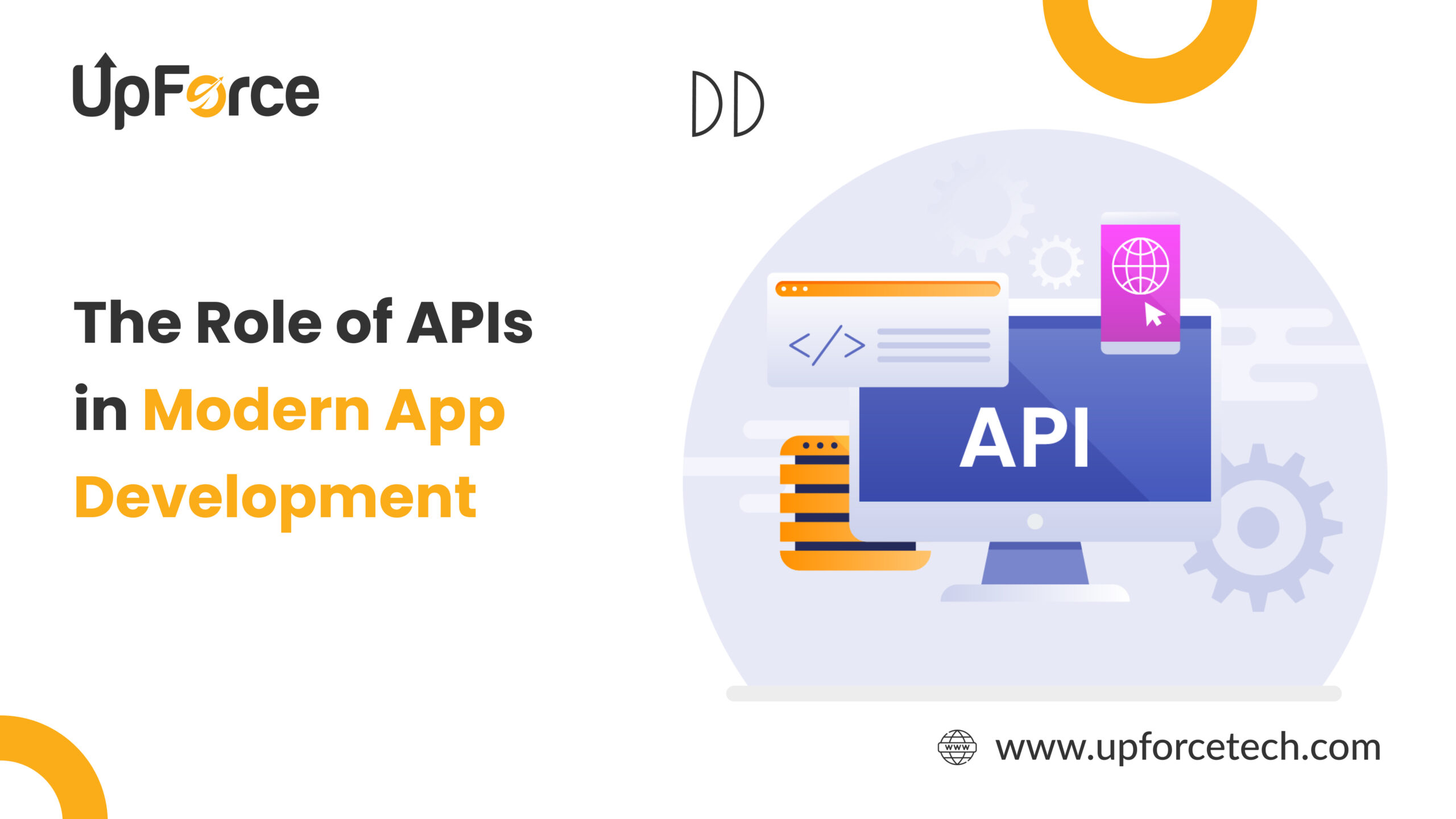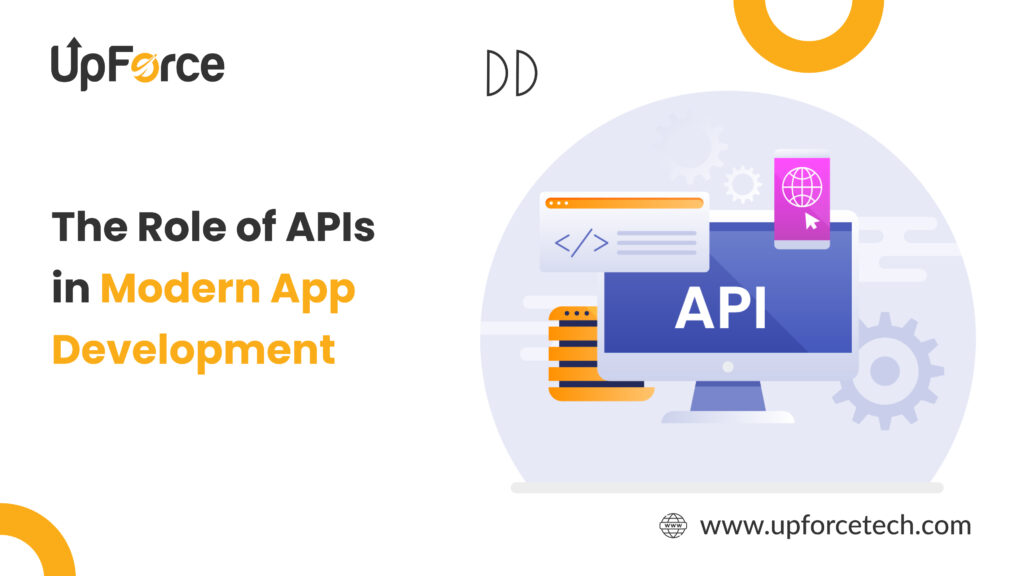The Role of APIs in Modern App Development
Table of Contents
The Role of APIs in Modern App Development: Driving Innovation and Efficiency
APIs (Application Programming Interfaces) play a critical role in modern app development. They act as bridges between different software systems, allowing them to communicate and exchange data seamlessly. This has become vital in a world where applications need to integrate with various services, platforms, and devices to provide a cohesive experience. APIs have revolutionized how developers build apps, improving efficiency, scalability, and functionality.
In this blog, we will explore the role of APIs in modern app development, why they are so crucial, and how they can enhance the development process. We will also provide insights into best practices and common mistakes when using APIs.

What is an API?
APIs are a set of protocols and tools that allow different software applications to communicate with one another. APIs enable developers to access functionality from other services, eliminating the need to build everything from scratch. This can range from simple tasks like embedding Google Maps into an app to more complex operations like processing payments via PayPal or Stripe.
Why Are APIs Important in App Development?
APIs are essential for modern app development for several reasons:
1. Streamlining the Development Process
APIs help developers streamline the app development process by allowing them to leverage existing functionalities from other services. Instead of spending time coding a feature from the ground up, developers can use an API to integrate it into their app quickly.
2. Fostering Collaboration
APIs allow multiple developers and teams to work together on the same project. Different teams can build components of the same application using APIs to ensure smooth integration.
3. Enabling Innovation
APIs provide developers with access to cutting-edge technology and platforms, enabling innovation. For instance, APIs for machine learning, artificial intelligence, and blockchain help developers incorporate advanced features into their apps without needing to specialize in those fields.
4. Improving Scalability
APIs enable applications to scale more easily. As an app grows in complexity or user base, developers can integrate more APIs or adjust API requests to manage the increased load without overhauling the core app infrastructure.
5. Increasing Flexibility
APIs give developers the flexibility to integrate different services and platforms into their apps, ensuring compatibility with various devices and operating systems. This helps businesses adapt to changing technology trends and user demands.
Types of APIs Used in App Development
There are several types of APIs used in app development, each serving a different purpose. Understanding the differences can help developers choose the right API for their needs.
1. Open APIs (Public APIs)
These are publicly available APIs that any developer can use. Examples include Google Maps, Twitter APIs, and Facebook APIs. Open APIs foster innovation by providing developers with the ability to access external services.
2. Internal APIs (Private APIs)
These APIs are used within an organization and are not available to external developers. They allow different internal teams to collaborate more effectively by accessing and sharing data securely.
3. Partner APIs
Partner APIs are shared between specific business partners, enabling controlled access to certain features or data. For example, an eCommerce company might share a Partner API with a payment processing service to manage transactions.
4. Composite APIs
Composite APIs allow developers to make multiple API calls with a single request. This can be useful when building complex applications that need data from several sources, as it reduces the load on servers and improves app performance.
How APIs Improve App Functionality
APIs bring immense value to app development by improving functionality. Here are a few examples of how APIs enhance modern apps:
1. Social Media Integration
Using APIs, developers can integrate social media features directly into their apps. This includes allowing users to log in via Facebook or Google, share content on Twitter, or retrieve data from Instagram.
2. Location Services
APIs like Google Maps or Apple’s Core Location allow developers to add location-based features to their apps. This is especially useful for navigation, food delivery, ride-sharing apps, and more.
3. Payment Gateways
APIs from PayPal, Stripe, or Square provide secure payment processing within apps. This eliminates the need to develop complex payment systems, ensuring that apps can handle transactions safely and efficiently.
4. Cloud Storage
APIs from cloud service providers like AWS, Google Cloud, and Microsoft Azure allow apps to store data remotely. This improves scalability and ensures that apps can handle large amounts of data without local storage constraints.
5. Machine Learning & AI
Developers can access advanced machine learning models and artificial intelligence services through APIs provided by platforms like TensorFlow, IBM Watson, and Google AI. These APIs help apps deliver smart, predictive features such as voice recognition, chatbots, and recommendation systems.
Best Practices for Using APIs in App Development
To get the most out of APIs, developers should follow a few best practices:
-
Use Documentation – Always refer to API documentation to understand how it works and ensure you’re using it correctly.
-
Error Handling – Implement robust error handling to manage failed API requests and maintain app stability.
-
Security – Secure your APIs by using authentication and encryption methods such as OAuth, API keys, and SSL certificates.
-
Version Control – Use version control for APIs to maintain compatibility with older versions of your app while adding new features.
-
Rate Limiting – Implement rate limiting to control how often your app makes API requests, ensuring that servers aren’t overwhelmed.
Case Study: Uber’s Use of APIs for Innovation
One of the most successful companies utilizing APIs is Uber. The ride-sharing giant uses various APIs to deliver its services seamlessly.
- Maps API: Uber integrates Google Maps API to display ride routes and estimated arrival times.
- Payment API: Payment gateways like Stripe and PayPal are used to handle secure payments.
- Messaging API: Twilio’s messaging API helps Uber communicate with drivers and customers via SMS.
Through APIs, Uber has been able to focus on scaling its core business without needing to build everything from scratch. This efficient use of APIs has allowed Uber to expand rapidly while delivering a consistent and reliable user experience.
How We Can Help You in APIs at UpforceTech
At UpforceTech, we understand the power of APIs in modern app development. Whether you’re building a new app or integrating new features into an existing one, our team of experienced developers can help you leverage APIs to enhance your app’s functionality. We specialize in API integration, ensuring your app delivers a seamless experience while reducing development time.
Visit UpforceTech to learn how we can assist you in your next app development project.
How UpforceTech Can Help You Hire the Right Contract Developer
At UpforceTech, we specialize in connecting businesses with highly skilled contract developers who can meet their unique needs. Our rigorous vetting process ensures that you get access to the best talent, whether you need someone with expertise in front-end development, back-end systems, or mobile app development.
Here’s how UpforceTech can support your business:
- Access to a Global Talent Pool: We provide access to a diverse range of developers from around the world, ensuring you find the right fit for your specific project needs.
- Customized Hiring Solutions: Whether you’re looking for short-term contract developers or long-term project-based teams, we tailor our services to fit your requirements.
- Quality Assurance: Every developer in our network goes through a comprehensive screening process to ensure they have the necessary skills and experience to deliver high-quality work.
- Ongoing Support: Our commitment doesn’t end with hiring. We offer ongoing support to ensure a seamless integration of contract developers into your team.
For more information on how to get started with hiring contract developers, visit UpforceTech.
Are you looking to Grow your business with skilled developers? Hire a contract developer today to bring fresh ideas and expertise to your team. Learn how UpforceTech can help!
Sign up for the free Newsletter
APIs are the unsung heroes of modern app development, enabling seamless integration, innovation, and faster time-to-market.
UpforceTech
FAQs
APIs (Application Programming Interfaces) allow different software systems to communicate and share data, streamlining the development process.
APIs provide access to external services and features like social media integration, payment gateways, and location services, enhancing an app's capabilities.
APIs help developers build apps more efficiently by allowing them to leverage existing services instead of creating everything from scratch.
Common types include Open APIs, Internal APIs, Partner APIs, and Composite APIs.
The right API depends on your app's specific needs. Ensure it has good documentation, security features, and scalability options.
Partner APIs are shared between specific business partners, offering controlled access to certain features or data.
APIs allow apps to scale by enabling integration with other services, handling increased user loads without overhauling the core app infrastructure.
Popular APIs include Google Maps, Facebook APIs, PayPal APIs, and AWS.
Best practices include referring to API documentation, using proper error handling, securing the API, and implementing version control.
Yes, APIs are essential in mobile app development, allowing apps to integrate with other services and platforms seamlessly.

